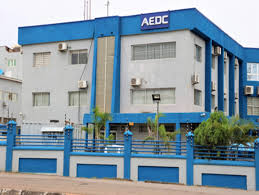Africa Records $13 Billion Cereal Trade Deficit — World Bank Raises Alarm Over Poor Transport, Food Supply Chains

A new World Bank report has revealed that Africa recorded a staggering $13 billion cereal trade deficit in 2023, warning that strained transport infrastructure and weak supply chains are hampering food security across the continent.
The report, titled “Transport Connectivity for Food Security in Africa: Strengthening Supply Chains,” analyzed the movement of four major staples—cassava, maize, rice, and wheat—across national and regional borders. It found that most African countries remain heavily dependent on cereal imports, despite local production efforts.
According to the World Bank, Nigeria, Africa’s largest economy, had a negative trade balance of $2 billion on cereals in 2023—the highest on the continent. In contrast, South Africa recorded a positive trade balance of $170 million.
“Seven countries had negative cereal balances of more than $500 million, 24 had deficits between $100 million and $500 million, while 17 others had negative balances of up to $100 million,” the report stated.
The report also pointed out a “spatial mismatch” in countries like Nigeria, where rice production in central regions outpaces local consumption, requiring improved transport systems to distribute surplus to deficit areas in the north and south.
“Although countries like Nigeria, Tanzania, and the Democratic Republic of Congo are technically self-sufficient in rice, inefficient transport networks hinder effective distribution,” it added.
The World Bank emphasized that about 50% of rice consumed in Sub-Saharan Africa is produced locally, but poor logistics, infrastructure gaps, and weak inter-regional links are undermining the full potential of local agricultural systems.
The findings call for urgent investment in transport infrastructure, regional integration, and policy reform to strengthen food security and reduce import dependence across Africa.



